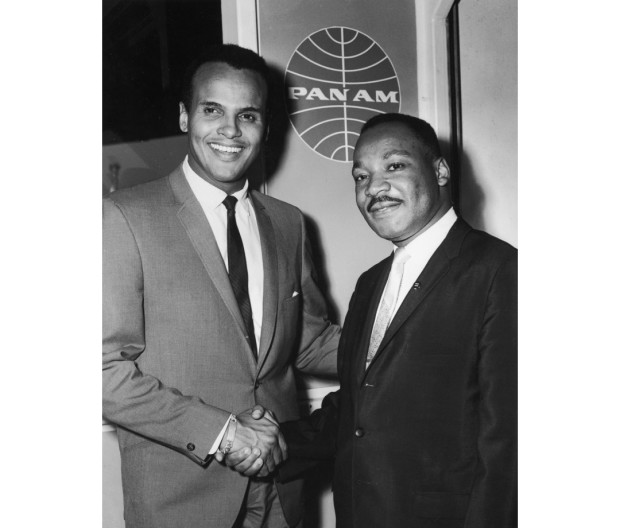Actor, singer, and activist Harry Belafonte died Tuesday morning, April 25, of congestive heart failure. His publicist, Ken Sunshine, confirmed to media outlets including The New York Times and CNN. He was 96 years old.
Dubbed the “King of Calypso,” thanks to the success of his breakout 1956 hit “Day-O (The Banana Boat Song),” Harlem-born Belafonte smashed racial barriers in the entertainment industry at the time. His 1956 album Calypso became the first album by a single artist to sell 1 million copies.
Belafonte found early success as a movie star in the 1954 film adaptation of the Broadway musical Carmen Jones. He also starred in TV specials and Broadway shows. The New York Times notes that by the end of the 1950s, he was the highest-paid Black entertainer in history. This meteoric rise took place during an era where racial segregation was still codified into law in many parts of the country.

Hulton Archive / Stringer / Getty Images
The entertainer would use his considerable success to promote a lifetime of civil rights activism. He befriended the Rev. Dr. Martin Luther King Jr. and provided early financial support to the young leader, fought against South African Apartheid, and helped mastermind the celebrity-filled 1985 hit “We Are the World,” which raised money for African famine relief. He became a UNICEF Goodwill Ambassador in 1987.
Belafonte remained politically active through the end of his life. He also continued to earn recognition for his artistry, receiving a Grammy lifetime achievement award in 2000 and a Jean Hersholt Humanitarian Award from the Academy of Motion Picture Arts and Sciences in 2014.
Belafonte was the first Black man to win Emmy and Tony awards, and is one of only 23 people in history to achieve coveted EGOT (or Emmy, Grammy, Oscar, and Tony) status when non-competitive categories are included.
He passed away in his Upper West Side home in Manhattan. In his 2011 memoir, Belafonte dubbed himself “an activist who became an artist.”
from Men's Journal https://ift.tt/sqgFVW0
via IFTTT
